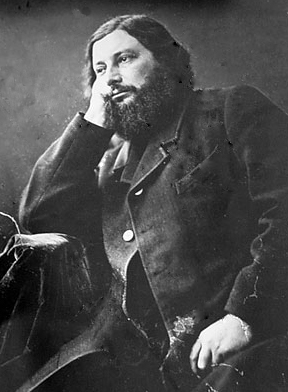A fellow author on LinkedIn has congratulated me on my choice of a unique event for my novel. Yes, of course he's right, the Paris Commune was unique, as the first (briefly) successful uprising in a modern, capitalist society. Urban revolt has been occurring almost since there have been cities, and there were immediate precedents in France: 1789, 1830, 1848. But the context had changed so much by the late 19th century (France was multi-continental imperial power, its major cities now included big industrial proletariats, communications had advanced enormously, and Paris itself had become "the capital of the 19th century" in Walter Benjamin's famous phrase), and running such a huge city had become so complex, that the communards had to invent everything as they went along.
What is not unique is my choice of subject matter. Like any powerful, dramatic event, the Commune has attracted scores of novelists and probably thousands of historians. I'm reading a recent novel now, Le cri du peuple, by Jean Vautrin. It's a lot of fun, fast moving and thoroughly researched, but not like what I'm aiming to do. But I'll say more about that after I finish Vautrin's novel — it's slow going for me (despite the speed of the action), mainly because Vautrin inserts so much underworld argot that I'm clicking on the dictionary every couple of paragraphs. At least, I'm learning a lot of vocabulary. But it will be hard to work it into conversation, unless I want to insult my French friends.
Vautrin has collaborated with illustrator Jacques Tardi to produce this marvelous bande dessiné, for which the two authors studied (among many other sources) the collection at the Musée de Saint-Denis, where I also have spent emotion-filled hours. For a video on this collaboration (in French), see "Le Cri du peuple" de Tardi et Vautrin - Vidéo Ina.fr.
We destroy the beauty of the countryside because the un-appropriated splendors of nature have no economic value. We are capable of shutting off the sun and the stars because they do not pay a dividend. — John Maynard Keynes
2013/09/28
2013/09/27
Writing revolution
 |
| Gustave Courbet, pondering the art of revolution |
So how's it going? I think I'm on track, but I'm not producing anything like 1,000 usable words of draft per day, which I think should be a reasonable quota. I hope to work up to that rhythm, though, once I work through my notes and tinkering with my outline. Meanwhile I'm still gathering more and more knowledge about Paris, French railroads, police, etc.
My novel starts with the lurch of my young protagonist, an apprentice bookbinder, from Lyon to Paris, by rail (his first trip anywhere), because he's decided to change his life — so I wanted to find out about the PLM (Paris-Lyon-Marseille or Méditerranée) line, tried but failed to get an 1870 timetable, did get an idea of how long it would take, am guessing about the fare (2 fr. 40 would be a day's wages for my guy) and the neighborhood where he would end up (3ême arrondissement, Gare de Lyon).
Why a bookbinder? Because that was one of the most politically engaged industries in the Commune. But why from Lyon? Because aside from Paris, Lyon was one of the most revolutionary cities in all France, especially in the silk industry, where women ovalistes had just formed the first feminine section of the International.
Another of my characters is a police official, and I've had to determine whether in the Sûreté (secret investigative police, staffed mainly by former criminals) or the Préfecture, and get some idea of how that was set up. For now, my character is a sous-préfet, meaning high-ranking but not at the top of the Préfecture. I already know (enough for my novel, probably) about the new police set-up under the Commune.
I'm delighted to be learning all this, but it doesn't make for rapid novel production. It does however enable me to understand the Commune in much greater complexity than we usually see.
To find out more about the Commune and to see some marvelous images, check out the blog of writer Yves Fey:
The Commune | YVES FEY
Subscribe to:
Comments (Atom)